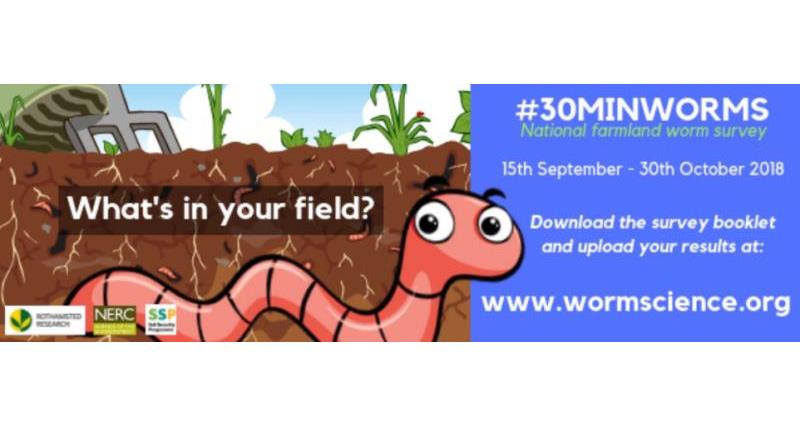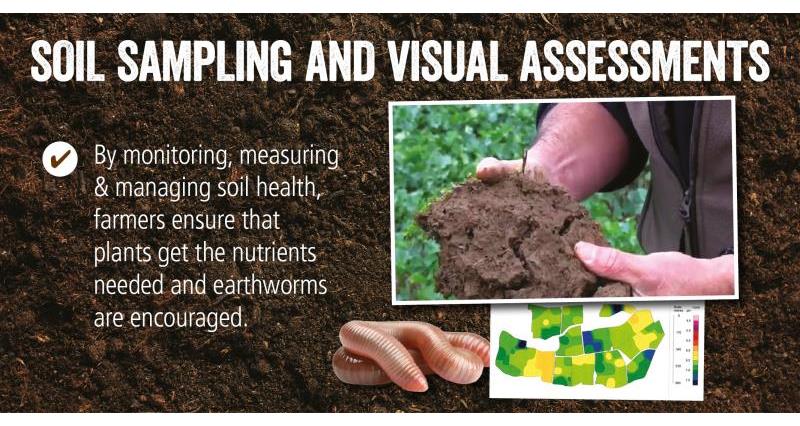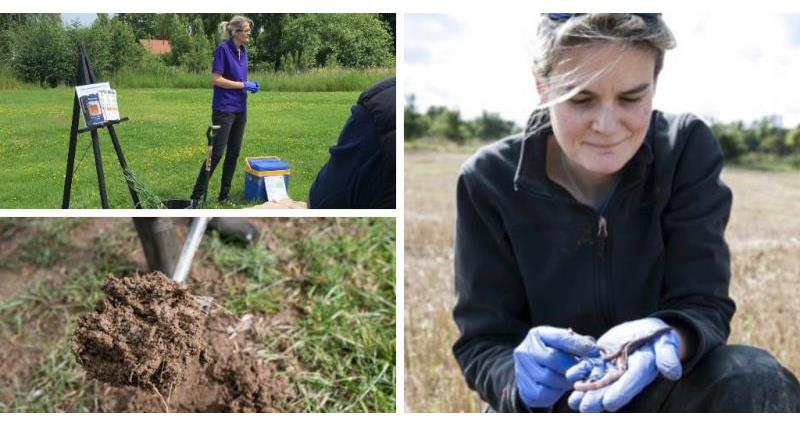Calling all farmers: Dr Jackie Stroud of Rothamsted Research is inviting farmers to join the first national survey of earthworms on farmland and discover how they support environmental stewardship and improve crop productivity sustainably.
An ambitious six-week programme to map the earthworm population of the UK begins next week, building on the success of a pilot study early this year when around 100 farmers volunteered 60 minutes to survey their fields; this time, many more are being asked to give up 30 minutes.
The inaugural national farmland #30minworms survey runs from 15 September to 31 October. It aims to help farmers to record their earthworm populations and to assess the effects of soil management, such as tillage and cover cropping, on soil health. Survey booklets can be downloaded here.
“If you think of soil health, the best place to start is with the ecosystem engineers – earthworms,” says Jackie Stroud, NERC Soil Security Fellow at Rothamsted Research who devised and leads the programme. The work is funded by the Natural Environment Research Council (NERC) with facilities provided by the Biotechnology and Biological Sciences Research Council (BBSRC).
Stroud notes the different values of the three main types of worms: “Not only do earthworms support crop productivity, but surface living worms are good prey sources for declining bird species; topsoil worms help aggregate soils, reducing their erodibility; and drainage worms, the deep-burrowing species, support water infiltration and deep crop rooting.”
Traditionally, farmland earthworm assessments have required up to 4 days of fieldwork per farm, followed by expert taxonomic analysis in a laboratory.
“Working with farmers, we have redesigned farmland earthworm surveys – culminating in a 30-minute test that generates robust and reliable data about the earthworm community structure,” says Stroud. “This information can be used to gauge soil health – what is working well, and where improvements could be made.”
This latest survey builds on the pilot study in March and April. Results from that pilot study are currently in press, with publication imminent; initial findings are available here, on bioRxiv, the open access, preprint repository for the biological sciences, hosted by Cold Spring Harbor Laboratory on Long Island, New York.
“I was thrilled with the pilot Spring earthworm survey,” says Stroud. “More than 1300 hectares of farmland soils were surveyed by farmers and their families all over the UK, including fields managed under arable, potatoes, horticulture and pasture.”
She adds: “This revealed that 58% of fields had basic earthworm biodiversity and around 15% had exceptional earthworm populations – and we could detect the effect of different tillage practices and cover cropping. Importantly, farmers feedback directly led to the #30minworms method and database so that, as a community, we can generate a first-class resource to realise soil health in practice.”
The survey booklet, available here, describes what is involved. Each test starts with the digging of five soil pits (20 centimetres x 20cm x 20cm) across a field (in the shape of a W), then the earthworms are categorised and counted, and their data recorded for despatch to Stroud.
“Don’t worry if you don’t know your surface dwellers from your deep burrowers,” Stroud says. “Half the people who took part in the pilot survey were unconfident in their earthworm ID skills…until they tried the online earthworm ID quiz, which comes with the booklet, before they headed for the fields.”

